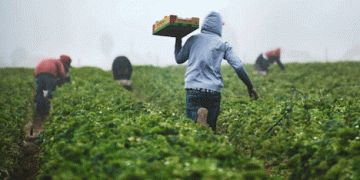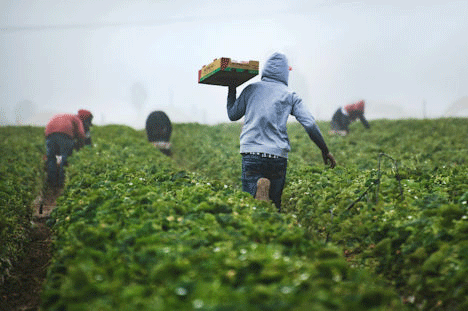The German government has taken significant steps to address one of agriculture’s most persistent challenges—seasonal labor shortages—by approving legislation that extends the tax-free work period for harvest helpers from the current limit to 90 days. This policy change, part of the coalition agreement implementation, represents a crucial adaptation to the realities of modern agricultural labor needs and could substantially impact harvesting efficiency across Germany’s agricultural sector.
The new legislation, drafted by the Federal Ministry of Labour and Social Affairs (BMAS), specifically allows seasonal agricultural workers to work up to 90 days without triggering social security contribution requirements. This extension addresses the increasingly stretched harvesting windows that farmers face due to climate change and diversified crop patterns. Previously, the shorter period often forced farmers to either rotate workers inefficiently or face significant additional labor costs during critical harvest periods.
The agricultural labor challenge in Germany mirrors trends across developed economies. According to European Commission data, the agricultural sector across EU member states faces seasonal labor shortages of 15-25% during peak periods, with particularly severe impacts on perishable crops requiring timely harvesting. Germany’s fruit and vegetable sector, which employs approximately 300,000 seasonal workers annually, has reported increasing difficulties in securing adequate labor, especially for crops with narrow harvesting windows.
The economic implications are substantial. Research from the German Agricultural Association (DBV) indicates that labor costs typically represent 30-40% of production expenses for labor-intensive crops such as asparagus, berries, and apples. The ability to employ workers for longer periods without additional social security contributions could reduce overall labor costs by 8-12% for affected producers, according to preliminary estimates from agricultural economists.
The policy change also reflects adaptation to changing agricultural realities. With climate change extending growing seasons and creating more variable harvesting conditions, the fixed shorter work periods had become increasingly misaligned with actual agricultural needs. The extension to 90 days provides greater flexibility to accommodate:
- Extended harvesting windows due to warmer autumns
- Staggered crop maturation patterns from variable weather
- Multiple crop rotations within single growing seasons
- Specialized crop requirements with longer harvesting periods
However, the policy continues to generate discussion about its broader implications. Labor organizations have expressed concerns about worker protections, while agricultural employers emphasize the necessity of flexible labor arrangements for seasonal operations. The German government has indicated that the measure will include appropriate safeguards to prevent exploitation while addressing legitimate agricultural needs.
Germany’s extension of the tax-free work period for seasonal agricultural workers represents a pragmatic response to the evolving challenges of modern farming. By aligning labor regulations with agricultural realities, the policy aims to reduce production costs while ensuring farmers can access adequate labor during critical harvesting periods. This approach acknowledges the unique seasonal nature of agricultural work while attempting to balance economic efficiency with worker protections. For farmers across Europe, Germany’s policy evolution may serve as a model for addressing seasonal labor challenges through regulatory adaptation rather than direct subsidy. As climate change continues to alter agricultural calendars and labor needs, such flexible policy approaches will become increasingly important for maintaining agricultural productivity and food security.































